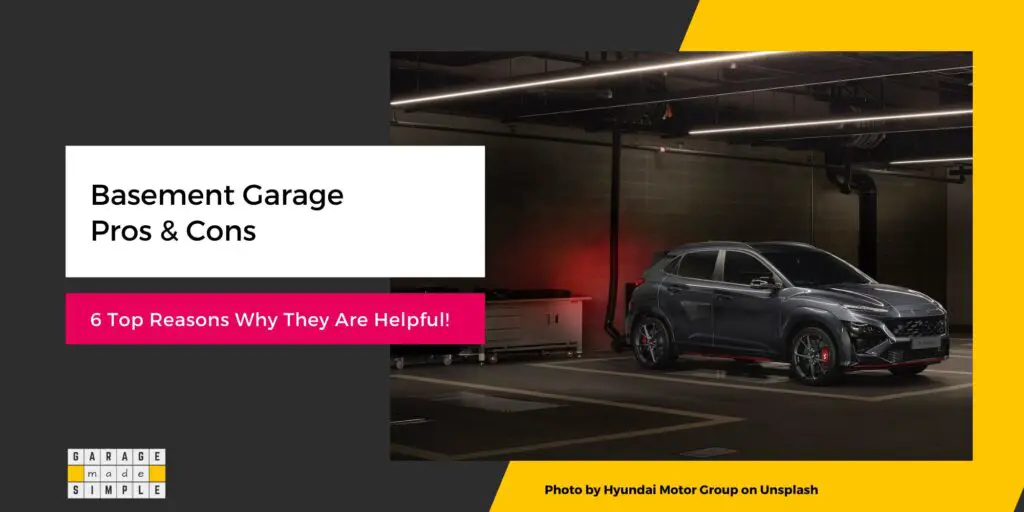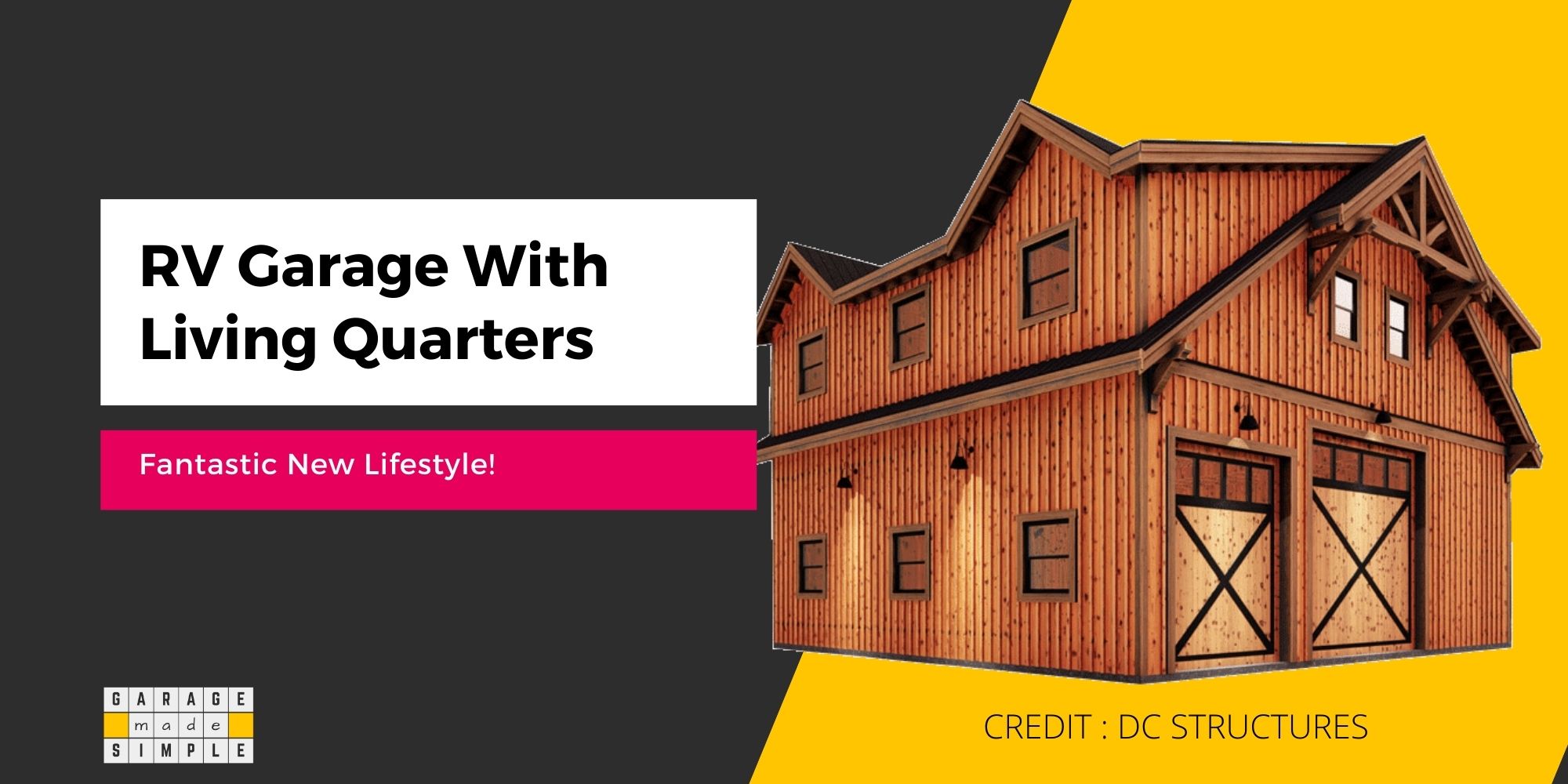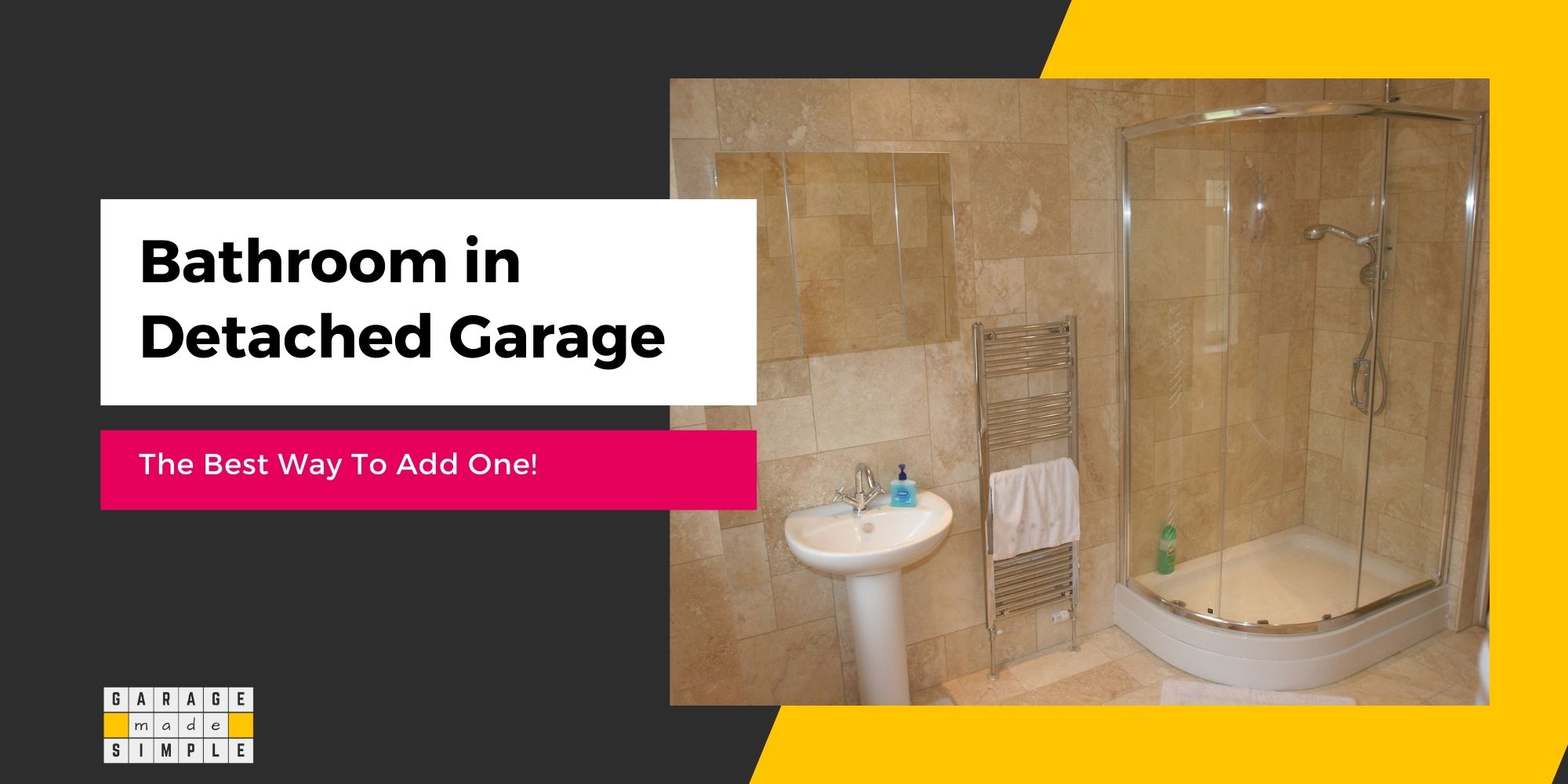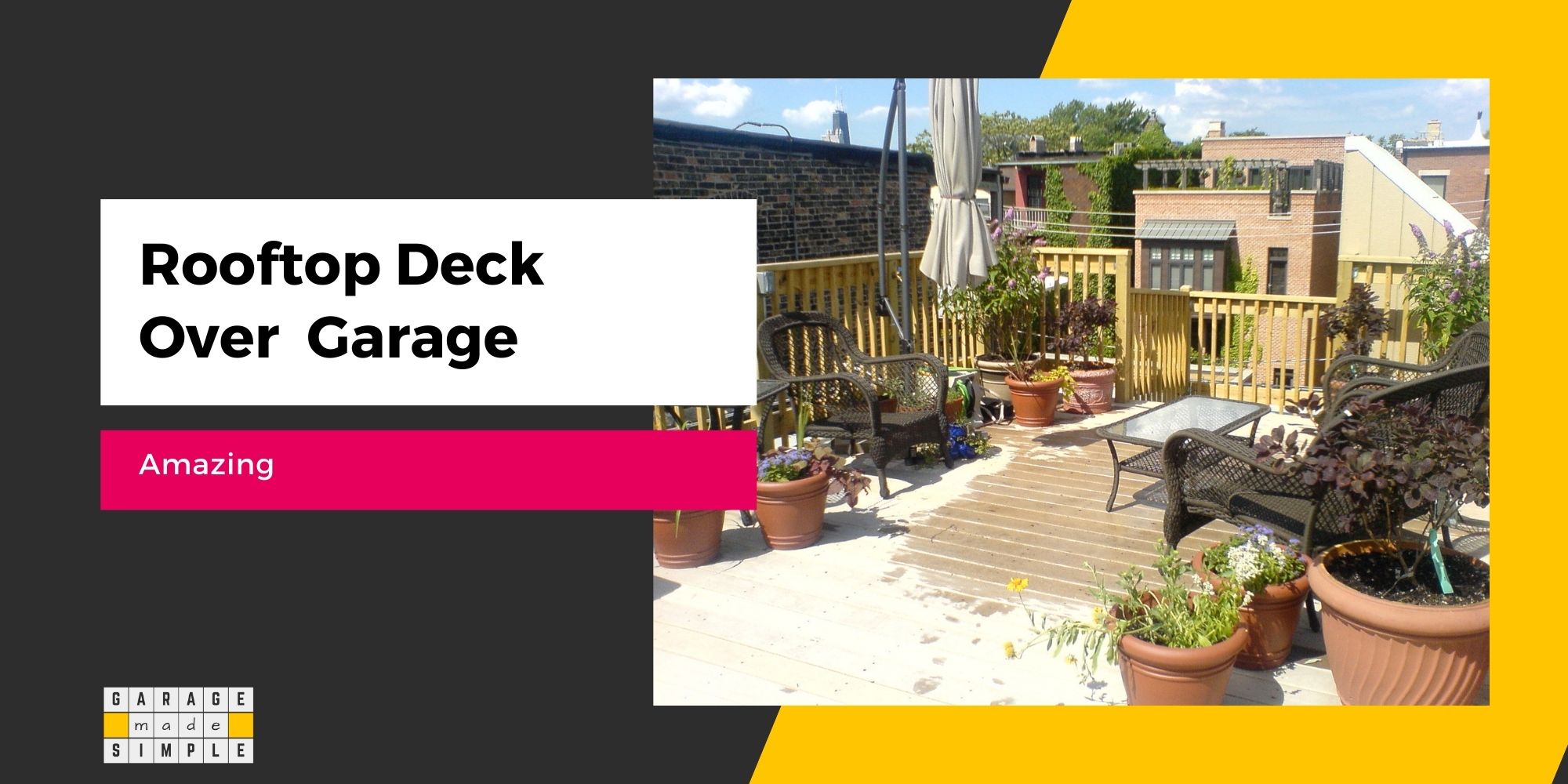Basement Garage Pros & Cons: 6 Top Reasons Why They Are Helpful!
garagemadesimple.com is a participant in the Amazon Services LLC Associates Program, an affiliate advertising program designed to provide a means for sites to earn advertising fees by advertising and linking to Amazon.com . The website is also an affiliate of a few other brands.
What Does a Basement Garage Mean?
Are you planning to build a new house but are concerned that your lot is smaller than you wanted it to be? Designing for space can be challenging. Building vertically can sometimes be the solution. A typical garage takes a lot of space, so why not consider a basement garage? But what does a basement garage mean?
A basement garage is a garage which is completely or partly underground. You can also think of it as a basement that has provision for car parking.
Building a basement is quite a difficult task. Building a basement garage is even more difficult. The entry to the basement is from within the house. But the entry to a basement garage has to be from outside. The basement garage door has to be large enough for a car to drive in but should be sealed so that the garage does not get flooded.
Though the designing & construction of a basement garage is quite challenging there are several benefits to be gained. In this post I explain the basement garage pros & cons.

Basement Garage Pros & Cons
Basement Garage Pros
There are quite a few advantages to building a basement garage.
PRO #1: Reduces Footprint of the House
When the garage is underground, the area of the garage is not added to the total square footage of the house. The greatest advantage of this is that it becomes a lot easier to get permits.
The garage is not subject to some of the zoning laws that your local building authorities may have for an attached or detached garage. Often the paperwork involved in getting the permit approval for a basement garage plan may be less than that for a detached garage plan.
A basement garage plan is not required to comply with any regulation regarding the distance from the property line. A detached garage plan, on the other hand, must comply with the minimum distance regulations from the property line, house and the curbside.
PRO #2: Better Lot Utilization
A basement garage essentially gives you an extra 500 square feet of space on your lot. That is the area a typical 2-car detached garage takes up.
This is simply fantastic if you have a small or odd shaped lot! There are numerous ways you could use this extra space. Put in a couple of extra bedrooms or give yourself a much larger living room.
You could use the extra space outdoors too. More space in the backyard will give you the option of having a garden or a large deck. More outdoor space can enrich your lifestyle, especially when the weather is pleasant. The kids will love the larger backyard.
PRO #3: Psychological Separation
A basement garage scores over an attached garage when it comes to keeping stuff you do in your garage separated from your daily family life.
A garage can be a sanctuary for you to work on your dream projects or hobbies. But an attached garage does not offer the level of privacy you may desire.
You may be into yoga & meditation, for example, and may want to build a yoga nook in your garage. It does not work out too well in an attached garage as pets, kids and even adults can easily walk in and disturb you. But a yoga nook in a basement garage will give you the serenity you need.
It’s not just yoga or meditation, most hobbies require that you have undisturbed “me time”. Think of reading, music, woodworking, weightlifting, whatever!
A basement garage provides a psychological distance, in addition to the physical distance between the living area and the garage.
PRO #4: Great for Homes on Slopes
A basement garage will be very appealing if your lot is on a steep slope. A clever basement garage plan will let you build a basement garage that may be partly underground and yet the access driveway has a very gentle slope.
The excavation work required will be a lot less too!
PRO #5: Garage Basement Merger
When the basement garage and the regular basement are at the same levels you can naturally merge the two to create a really large underground livable space.
Imagine a huge recreation zone below your house. Set up a home theater if you like. Or go a step further and add indoor sports like a pool or card table. Build a home gym, yoga room and a meditation zone. How about a man cave with a bar and a TV showing sports all the time!
More space gives you more ways to enhance your lifestyle!
PRO #6: Stays Cool in Hot Climates
A basement garage will stay cool even when the outside temperatures are in the high 80’s and 90’s.
Basements are always cooler than other parts of the house, simply because they are underground. A basement garage does not get heated by solar radiation. The moisture in the soil also keeps the grade cooler than the ambient temperature above.
This will not happen with a detached garage or even an attached garage. With a detached or attached garage you have to seriously consider climate control during summer.
A hot garage is not just uncomfortable, it is extremely damaging to your cars and many of the items that you typically store in the garage. Some of the ways high temperature shortens the life of your car or increases maintenance costs are:
- Loss of gas due to evaporation
- Reduction in tire life
- Battery life goes down as the water evaporates faster
- Reduction in engine life
- Many sporting goods such as golf clubs, canoes, skis, etc. use polymers or polymer adhesives. They break down when subjected to high temperatures
Basement Garage Cons
Based on the basement garage pros it seems that a basement garage is an absolutely fantastic option. But before you jump to that conclusion you must consider the cons too.
CON #1: High Cost & Effort
Any construction below grade is going to be a lot more expensive than building it above grade. The basement garage cost may be quite prohibitive.
There are many reasons for this:
Excavation Costs: This is straight away an additional cost. Excavation costs can rise up sharply based on accessibility and grade composition.
Fortification Costs: The excavated area needs to be fortified to eliminate the risk of the sides caving in.
Preventing Ground Subsidence: You will probably need to build retention walls to prevent rainwater from entering the excavated area.
Waterproofing Foundations: Foundations must always be waterproofed but this has to be at extreme levels when it comes to a basement or a basement garage.
Proper Drainage: In above ground construction, water flow in a drainage system is usually taken care of by gravity. Not so in a below grade construction. You will need a pump based drainage system.
Water Diversion: You must design & provide for water diversion before rainwater gushes into the basement garage from the sharply sloped driveway.
In a nutshell, building a basement garage requires high cost, a lot of effort and some engineering ingenuity.
CON #2: Extremely Cold in Cold Climates
The same basement garage which is an asset in hot climate zones (think Florida, Texas, Arizona) becomes a liability in cold climates zones (think Colorado, Upstate New York, Montana).
When the outside weather is hot the basement garage would be relatively cool. But when the outside weather is cold the basement garage could be close to freezing.
Extreme cold is not good for your cars or other possessions stored in the garage either.
CON #3: High Flood Risk
The basement garage construction will likely require extra flood protection measures. A basement garage is at a high risk of getting flooded, even more than a regular basement.
The obvious reason is that your basement garage is underground and water always flows to the lowest level. With a big garage door and a steeply sloping entrance a basement garage could get flooded by rain water or snow melt gushing down the driveway.
There can also be water seepage through the foundation walls and the garage floor due to a rise in the water table level. The water table can rise even without heavy rainfall in the immediate vicinity if the level rises in nearby natural water bodies such as lakes and rivers.
Installing drainage facilities in a basement garage is more expensive and complex. You will need to pump out the water. You also need to have water diversion in place so that rainwater does not enter the garage at all, if possible.
All these extras push up the basement garage cost!
CON #4: The Inconvenience
Whoever likes going up and down narrow stairs? Certainly not with grocery bags & small kids. Imagine coming back from a nice vacation and then having to lug the heavy bags upstairs!
Installing a small elevator to the floor above will be very helpful but will add to the basement garage cost.
CON #5: Difficult to Store Garden Equipment & Supplies
It is quite easy to store garden equipment & supplies such as lawn mowers or mulch in an attached or detached garage which is at ground level.
For obvious reasons this can be extremely difficult when it comes to storing garden equipment & supplies in a basement garage. The solution may be to make a small garden shed in the yard for this purpose. Another small bump up in the basement garage cost.
Is Basement Garage a Good Idea?
I must admit that there is no definitive answer. It totally depends on your need for more space and your budget. I just hope that now that you know the basement garage pros & cons, you can make a more informed choice.
Thank you very much for reading the post. I do hope you found it informative and useful.






